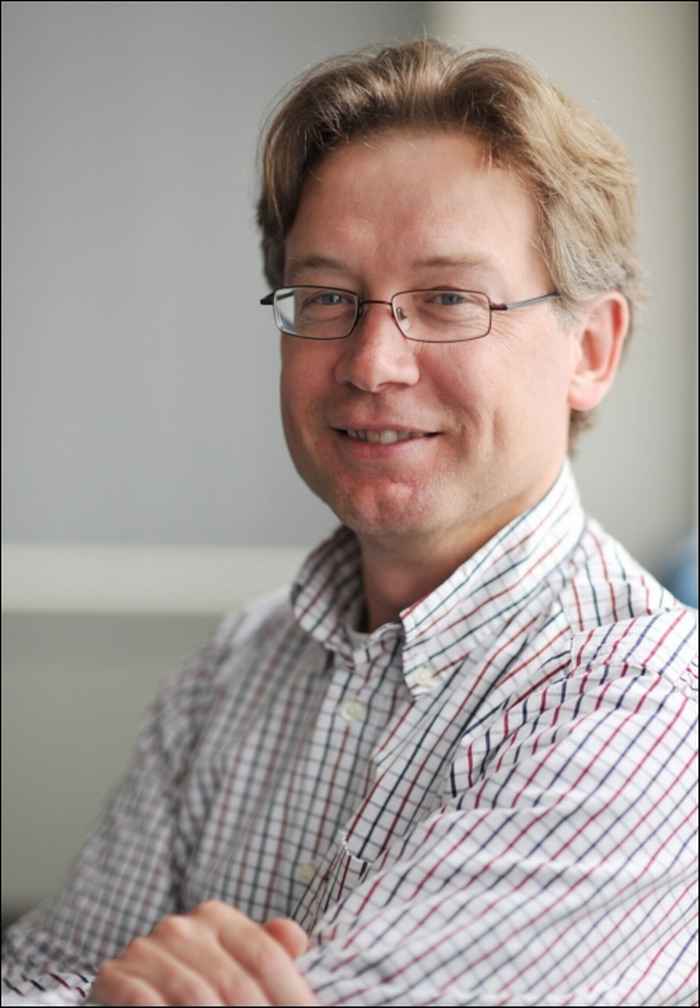J. Booij
12 June 2009

Mr J. Booij (1966) was appointed professor of Experimental Nuclear Medicine, specialised in neuropsychiatric disorders, at the University of Amsterdam's Faculty of Medicine (AMC-UvA).
Neurons in the brain communicate by producing chemical messengers, known as neurotransmitters. Neurons recognise these neurotransmitters on the basis of the specific proteins they express (receptors). Jan Booij's research focuses on identifying and quantifying neurotransmitter receptors by means of SPECT and PET imaging techniques. These techniques use pharmaceuticals labelled with a small amount of radioactive material, known as radiopharmaceuticals. A radiopharmaceutical consists of two components: one determines pharmacological behaviour (it has the ability to bind itself to a specific receptor) while the other consists of a radionuclide. As the radionuclide decays, it emits radiation that can be detected using SPECT or PET imaging techniques. Over the past few years, Jan Booij successfully completed a research project centered on identifying dopamine-producing neurons with SPECT in patients with Parkinson's disease and dementia with Lewy bodies. This technique has since become widely used in clinical diagnostics. He was also involved in intensive efforts to identify dopamine receptors produced during psychotic episodes and determine dopamine release by neurons in drug addicts. Finally, his research efforts focused on the role of serotonin in depression and the effects of XTC use on serotonin-producing neurons.
Jan Booij's research group is currently working to develop and evaluate new radiopharmaceuticals to identify dopamine receptors with SPECT and PET technology. At present, his group's clinically-oriented research is focusing on the role of the dopaminergic system in cocaine addiction and obesity.
Jan Booij has held various positions at the Amsterdam Medical Centre since 1994. He spent the past few years as a nuclear medicine physician on the nuclear medicine department staff. Booij was also recently appointed a member of the European Association of Nuclear Medicine's neuroimaging commission.